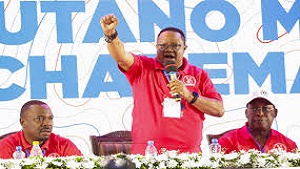The forum, which brings together religious leaders, scholars, and civic actors from across the globe, highlighted the central role of faith communities and traditional institutions in shaping a more equitable future.
Delivering a keynote address, Gauteng Premier Panyaza Lesufi warned that true decolonisation must extend beyond slogans and surface-level reforms. “If we speak of decolonisation, it must be all-encompassing. We cannot afford to exclude anyone who wants to be part of building a new world,” he said.
Lesufi was critical of the residual systems of apartheid, particularly in education, culture, and legislation. “The apartheid system showed us the dangers of bad laws, harmful cultural norms, and an unequal education system. If we’re serious about transformation, we must reject these foundations entirely.”
Central to his address was a firm endorsement of the Basic Education Laws Amendment Act, a piece of legislation aimed at levelling the playing field in the education sector. Lesufi argued that no child should be excluded from school on the basis of language or socio-economic status. “Education must not favour the wealthy over the poor. That’s where real decolonisation begins,” he said.
However, Lesufi also cautioned that modernisation comes with its own risks. He raised concerns about the lack of African-centred universities and curricula that reflect the identity of local communities. “Thirty years after 1994, we must ask: when last did we reimagine education to speak to the reality of an African child?” he asked.
He also lamented the growing disconnect between children and their heritage, noting the impact of digital distractions and cultural erosion. “If we don’t invest time and resources into our children, we risk raising a generation that doesn’t know where it comes from, and that would be a failure of decolonisation,” he said.
Dr Mathole Motshekga, Chairperson of the Southern African Interfaith Council and a veteran African National Congress politician, echoed Lesufi’s sentiments. He urged international leaders to engage with Africa on its own terms. “Before the world tells us what to learn, it should ask what we already know. We have a history, and it deserves to be acknowledged.”
Delegates from across the continent voiced support for a unified African approach rooted in shared values and cultural pride. A participant from Sudan, described the gathering as “a space to reconnect historically and religiously as Africans, and to build towards genuine Pan-African unity.”
Representatives from outside the continent also expressed solidarity. Nicholas Miller, part of the G20 Interfaith high-level delegation from the United Kingdom, said he had been deeply moved by his encounters with African traditional leaders. “It’s powerful to hear their voices and understand their deep commitment to being recognised with dignity and fairness.”
--ChannelAfrica--










